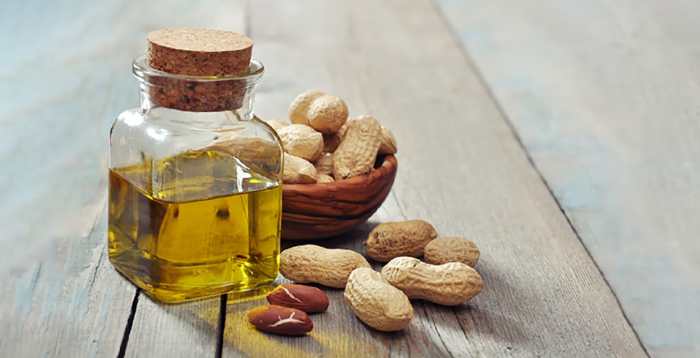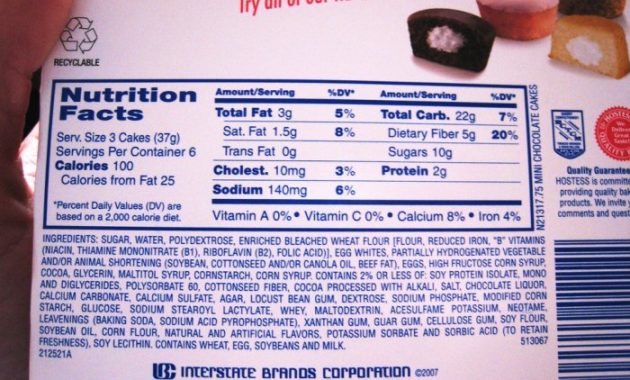Nutritional Composition of Peanut Oil: Peanut Oil Nutrition Facts

Peanut oil nutrition facts – Peanut oil, a culinary staple derived from the humble peanut, offers a unique nutritional profile that deserves closer examination. Its rich composition of fats, while primarily beneficial, necessitates understanding its various components to ensure informed and healthy consumption. This section delves into the detailed macronutrient breakdown and fatty acid profile of this versatile oil.
Macronutrient Composition of Peanut Oil
A typical serving size of peanut oil, approximately one tablespoon (14 grams), provides a concentrated source of energy almost entirely derived from fat. Protein and carbohydrates are virtually absent. The overwhelming majority of its caloric content comes from its unique blend of fatty acids. More specifically, one tablespoon contains approximately 120 calories, with negligible amounts of protein and carbohydrates (less than 1 gram each).
This makes peanut oil a pure source of dietary fat, contributing significantly to the overall energy intake when consumed.
Yo, so peanut oil’s got its own vibe, right? High in monounsaturated fats, good for your heart and all that. But if you’re checking out other oils, you should totally peep the nutrition facts for olive oil too; it’s another solid choice. Then you can compare and decide which one’s best for your next culinary adventure, whether it’s for your mie ayam or whatever you’re whipping up.
Peanut oil’s still a boss though, especially for stir-fries.
Fatty Acid Profile of Peanut Oil
The distinct character of peanut oil is largely determined by its fatty acid composition. This profile dictates its culinary applications and potential health implications. The following table details the breakdown of saturated, monounsaturated, and polyunsaturated fats within a typical serving.
| Fatty Acid Type | Amount (grams) per tablespoon (approx. 14g) | Percentage of Total Fat |
|---|---|---|
| Saturated Fat | 1.9 | 16% |
| Monounsaturated Fat | 7.2 | 60% |
| Polyunsaturated Fat | 3.2 | 27% |
The high monounsaturated fat content, particularly oleic acid, is a key feature often associated with potential cardiovascular benefits. The relatively lower levels of saturated fat compared to some other oils are also noteworthy. However, individual responses to dietary fat vary, and moderation in consumption is always recommended.
Vitamins and Minerals in Peanut Oil, Peanut oil nutrition facts
Peanut oil is primarily composed of fats and contains negligible amounts of vitamins and minerals. While some processing methods might introduce trace amounts, it is not considered a significant source of micronutrients in a typical diet. For vitamins and minerals, one should rely on a balanced diet encompassing a variety of fruits, vegetables, and other nutrient-rich foods.
Peanut Oil in Different Diets

Peanut oil, with its rich profile of monounsaturated and polyunsaturated fats, plays a valuable role in a balanced diet, contributing to overall health and well-being when consumed as part of a varied and nutritious eating plan. Its incorporation into various dietary patterns enhances flavor and texture while providing essential fatty acids.Peanut oil’s versatility allows for seamless integration into diverse culinary traditions and dietary preferences.
Understanding its role in different diets helps individuals make informed choices to optimize their nutritional intake and achieve their health goals.
Peanut Oil in a Balanced Diet
In a balanced diet, peanut oil offers a healthy source of fats, contributing to satiety and providing essential fatty acids like oleic acid (a monounsaturated fat) and linoleic acid (a polyunsaturated omega-6 fatty acid). These fats are crucial for various bodily functions, including hormone production, cell membrane structure, and nutrient absorption. However, moderation is key, as excessive fat intake can lead to weight gain.
A balanced approach involves incorporating peanut oil judiciously as part of a diet rich in fruits, vegetables, whole grains, and lean protein.
Incorporating Peanut Oil into Various Dietary Patterns
Peanut oil’s neutral flavor profile makes it adaptable to a wide range of dietary approaches.
Mediterranean Diet
The Mediterranean diet, renowned for its heart-healthy benefits, readily incorporates peanut oil. Its use in dressings for salads featuring fresh vegetables, olives, and feta cheese, or as a cooking oil for dishes like roasted vegetables or grilled fish, complements the diet’s emphasis on healthy fats and fresh produce. The oil’s high monounsaturated fat content aligns with the diet’s focus on minimizing saturated fat intake.
Vegetarian and Vegan Diets
Peanut oil serves as a valuable source of healthy fats in vegetarian and vegan diets, often used in stir-fries, sauces, and as a base for vegan mayonnaise or dressings. Its neutral flavor doesn’t overpower the taste of other ingredients, making it an ideal choice for various plant-based dishes. The oil contributes to the overall caloric and nutritional density of these diets, helping to maintain energy levels and support overall health.
Practical Uses of Peanut Oil in Everyday Cooking
Peanut oil’s high smoke point (around 450°F or 232°C) makes it suitable for various cooking methods, including high-heat applications like stir-frying and deep-frying.
- Stir-frying: Its high smoke point prevents the oil from breaking down and forming harmful compounds, ensuring that your stir-fried vegetables retain their vibrant colors and crisp texture.
- Deep-frying: Peanut oil provides a crisp and even fry, making it ideal for french fries, onion rings, or other deep-fried foods. Its neutral flavor won’t interfere with the taste of the food.
- Salad dressings: Its mild flavor makes it a versatile base for salad dressings, allowing the flavors of other ingredients like vinegar, herbs, and spices to shine.
- Baking: Peanut oil can be used in baking recipes as a substitute for other oils, adding moisture and a slightly nutty flavor to baked goods.
- Marinades: Its ability to blend seamlessly with other ingredients makes it a great addition to marinades for meats, poultry, or tofu, adding flavor and helping to tenderize the food.
FAQ Compilation
Is peanut oil suitable for high-heat cooking?
Yes, peanut oil has a high smoke point, making it suitable for high-heat cooking methods like stir-frying and deep-frying.
Can peanut oil be used in baking?
Yes, peanut oil can be used in baking, adding a subtle nutty flavor. However, it may alter the texture slightly compared to other oils.
Does peanut oil contain cholesterol?
No, peanut oil is naturally cholesterol-free.
What are the best ways to store peanut oil?
Store peanut oil in a cool, dark place in a tightly sealed container to maintain its freshness and prevent rancidity.

